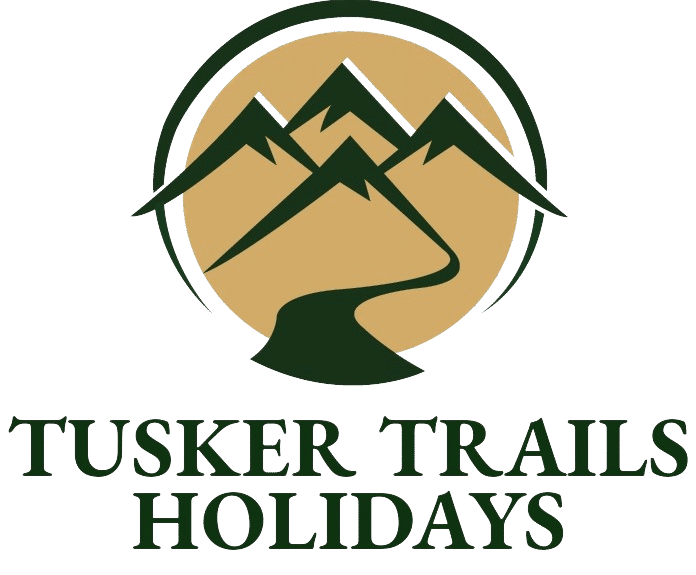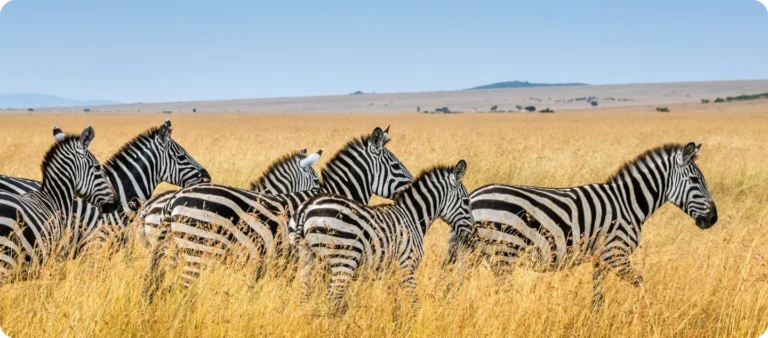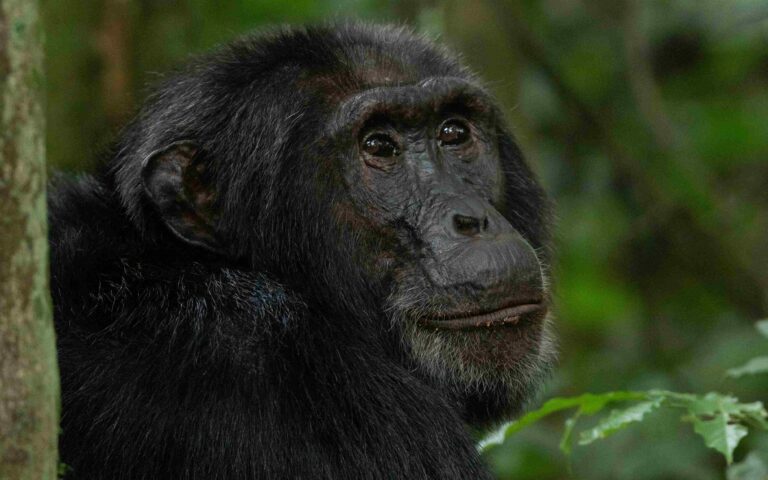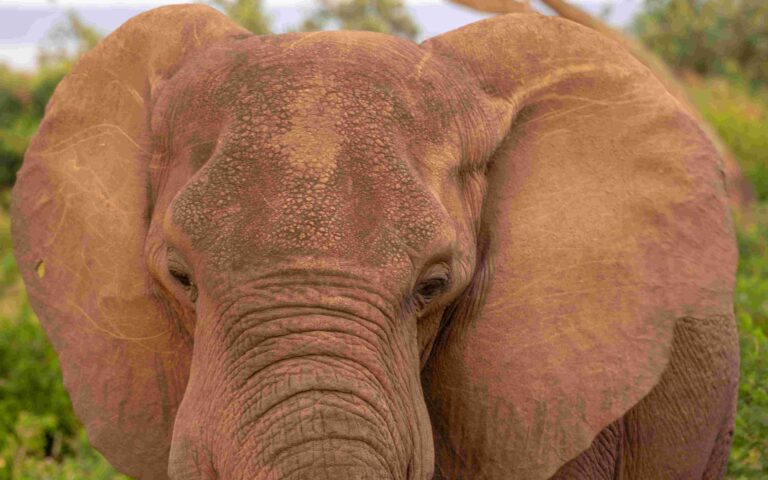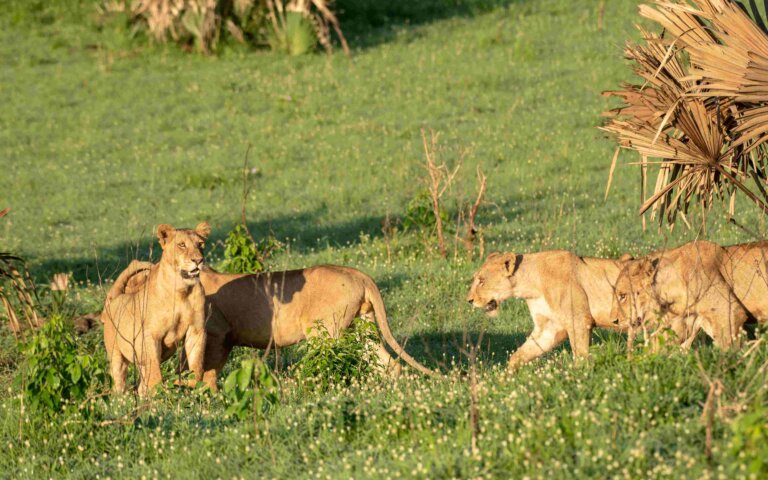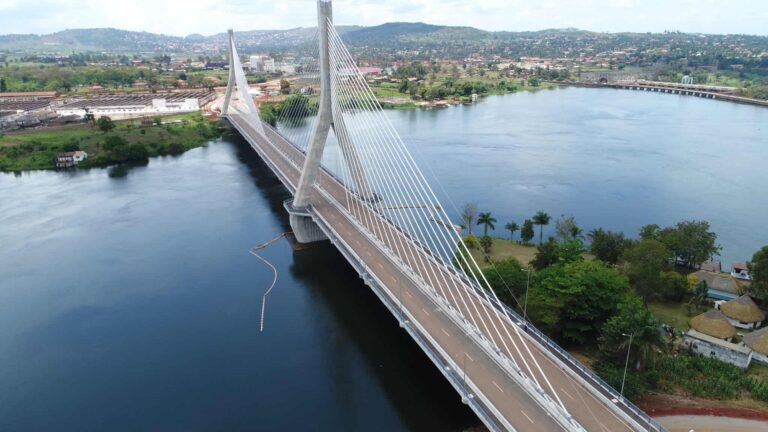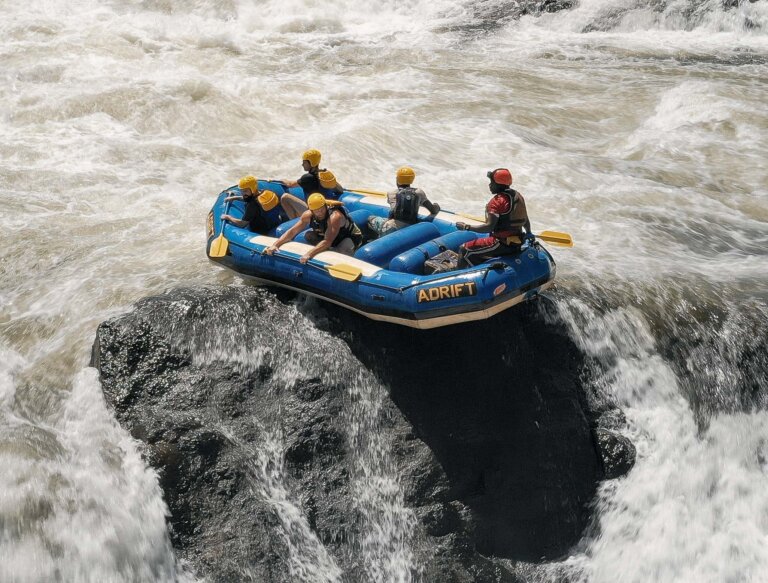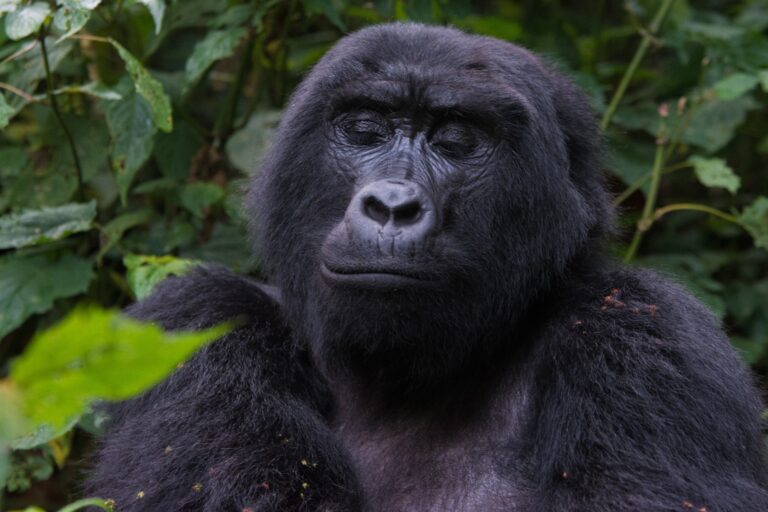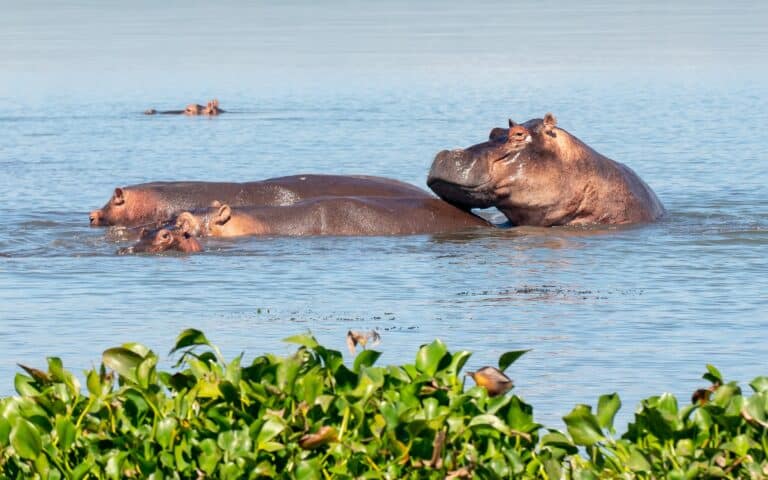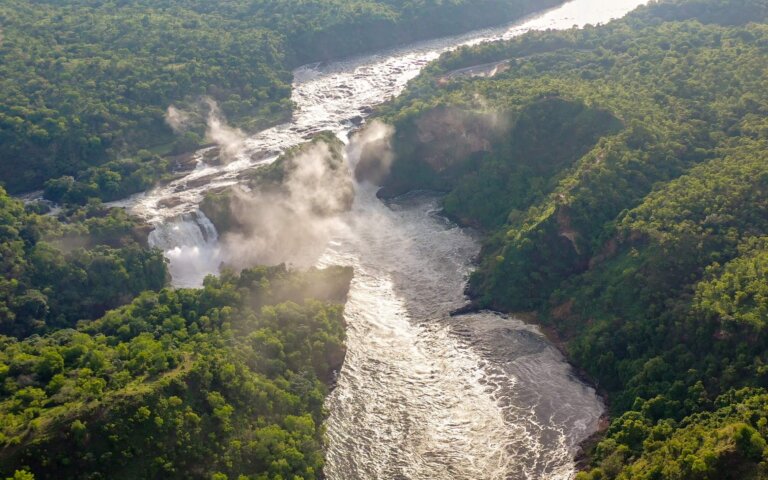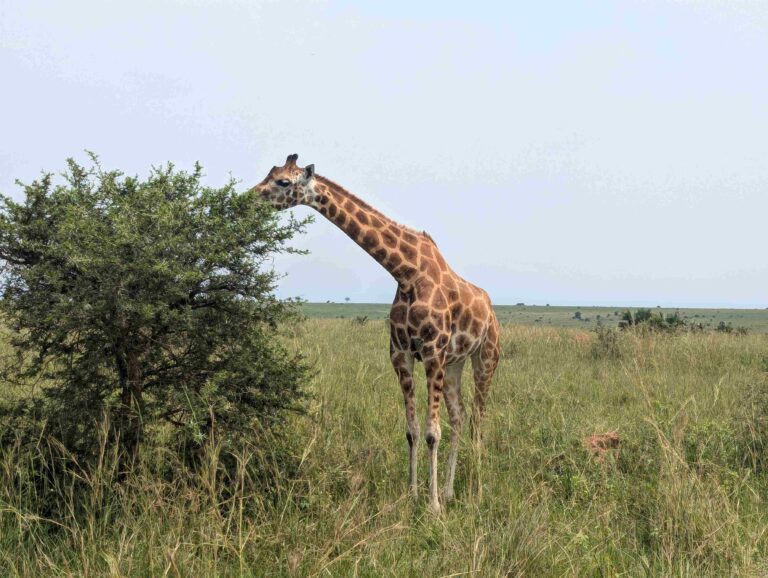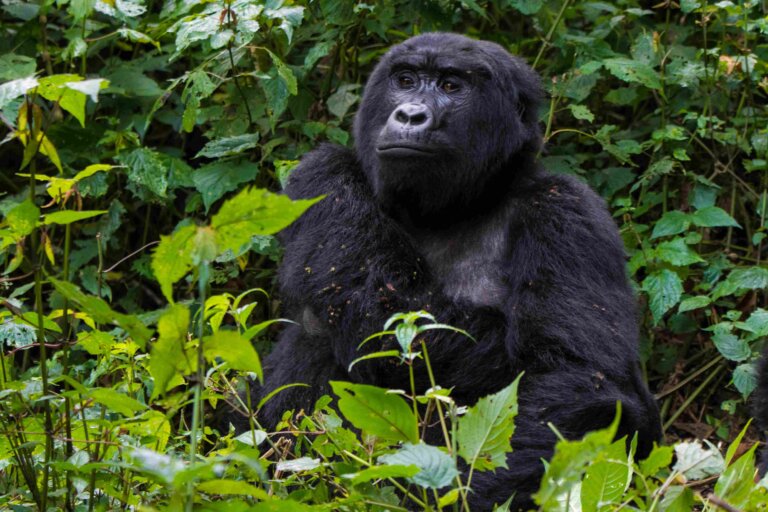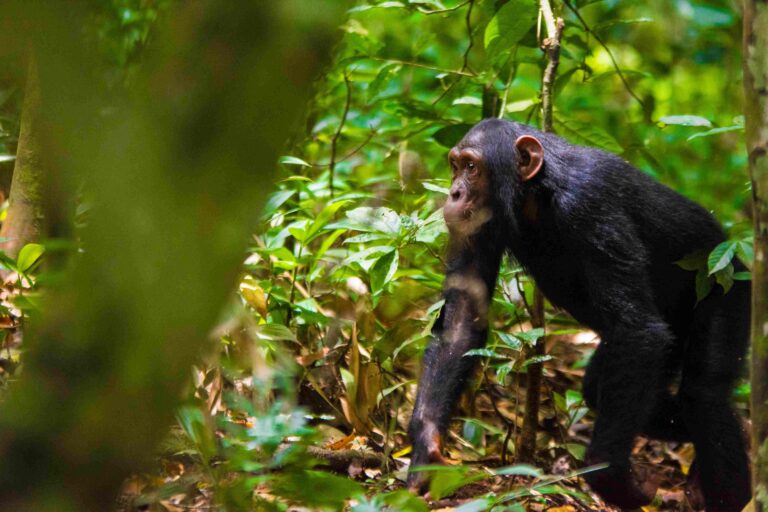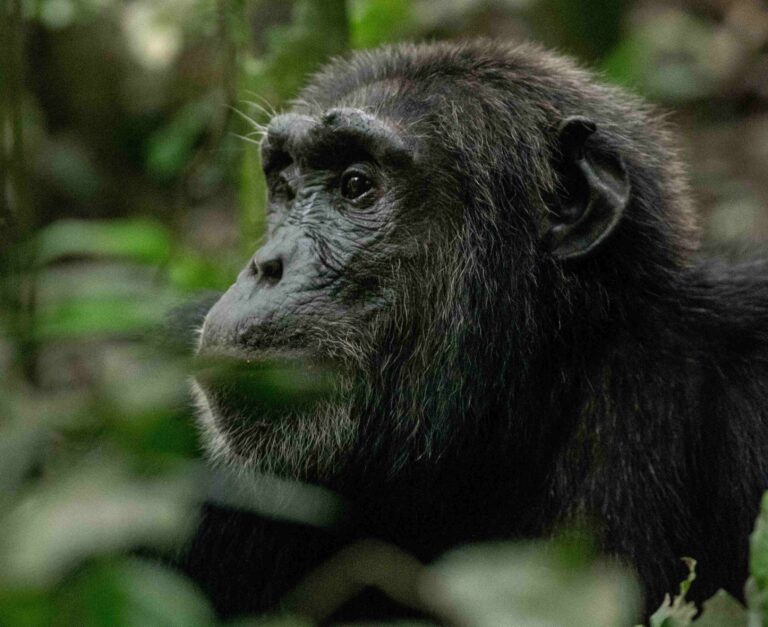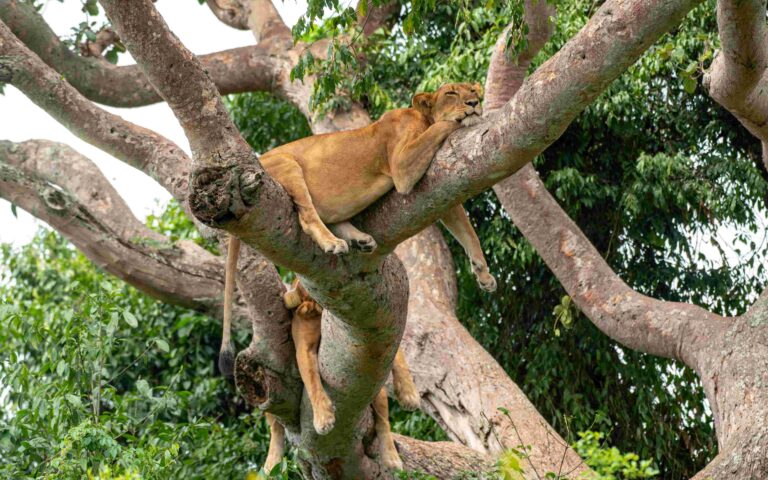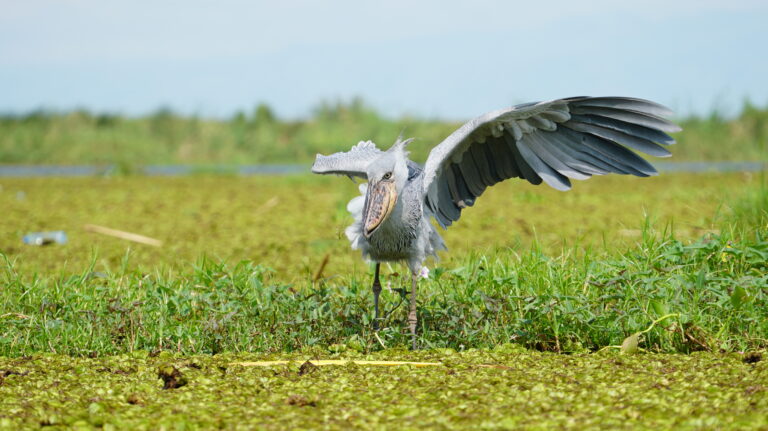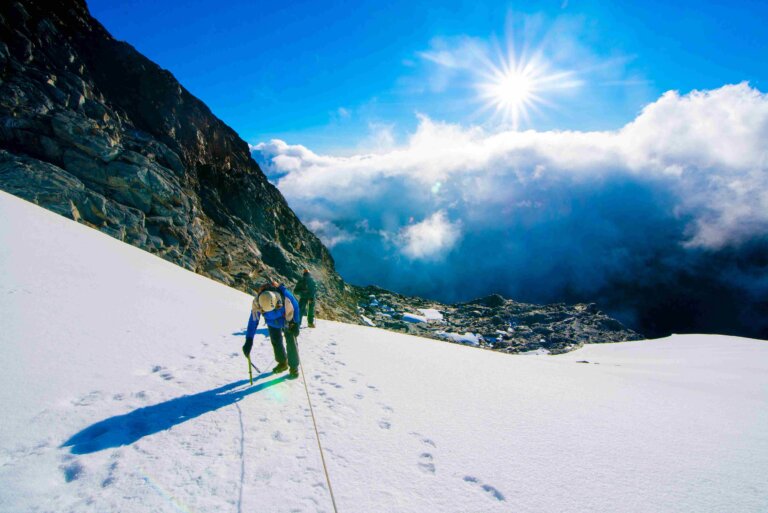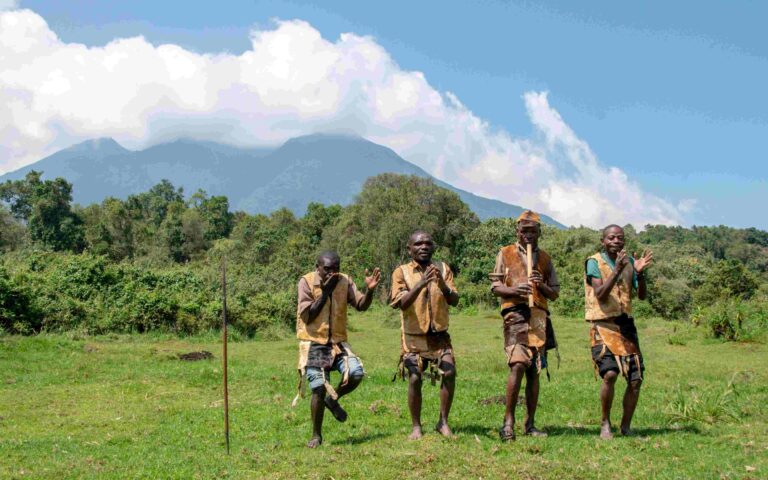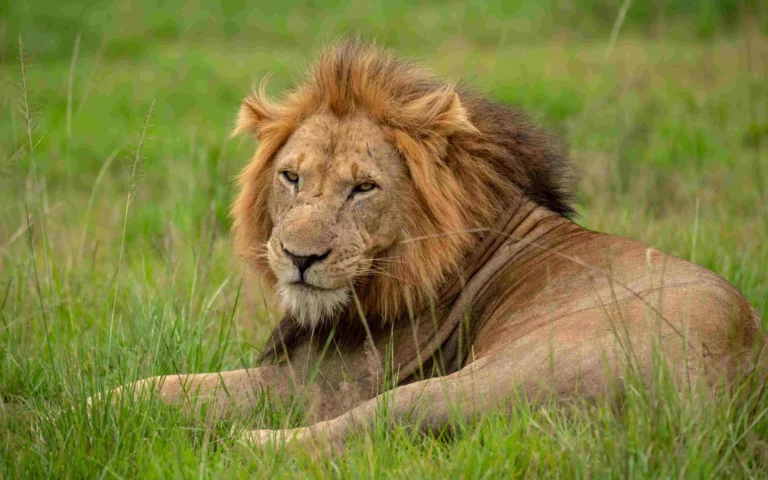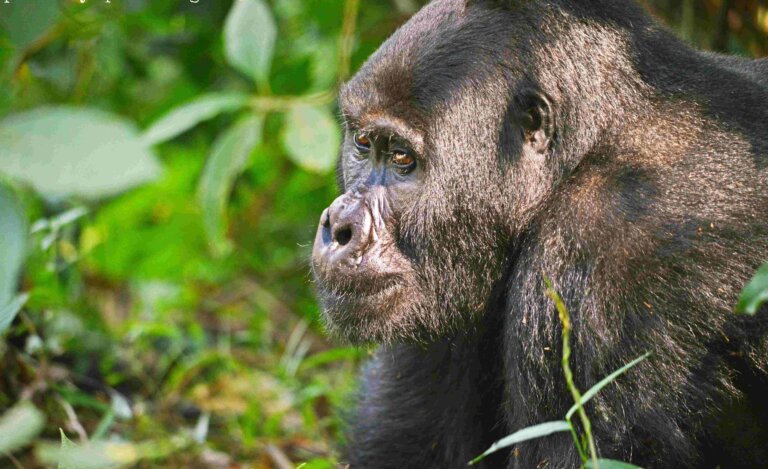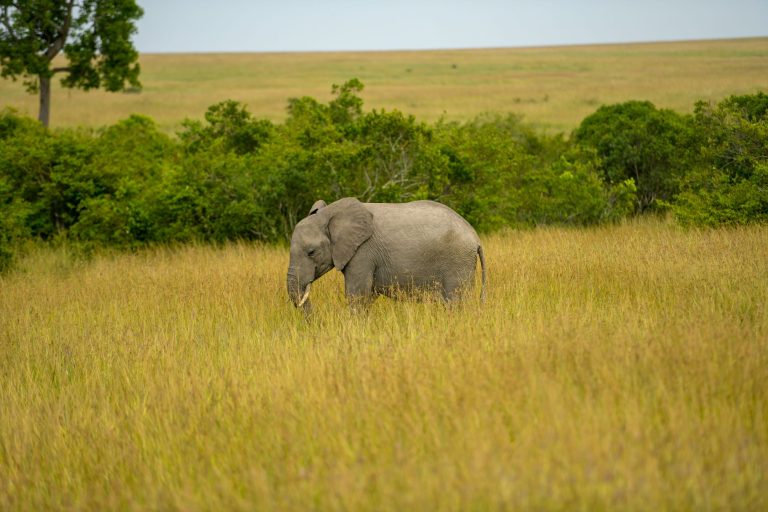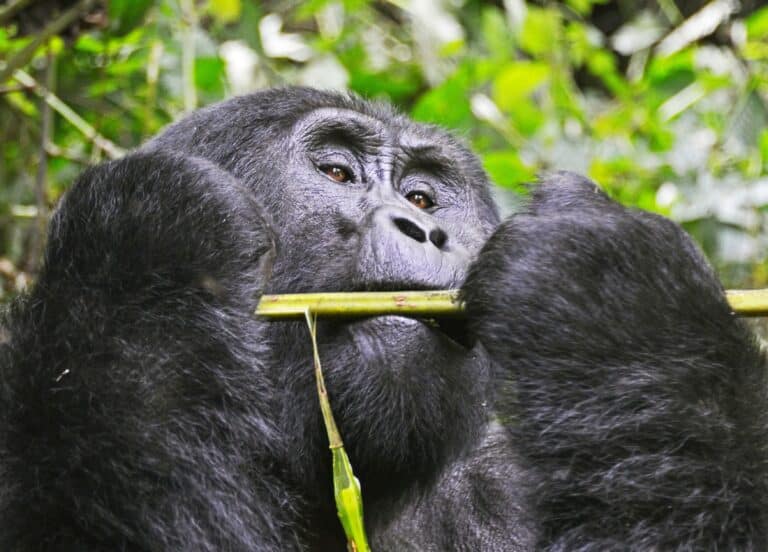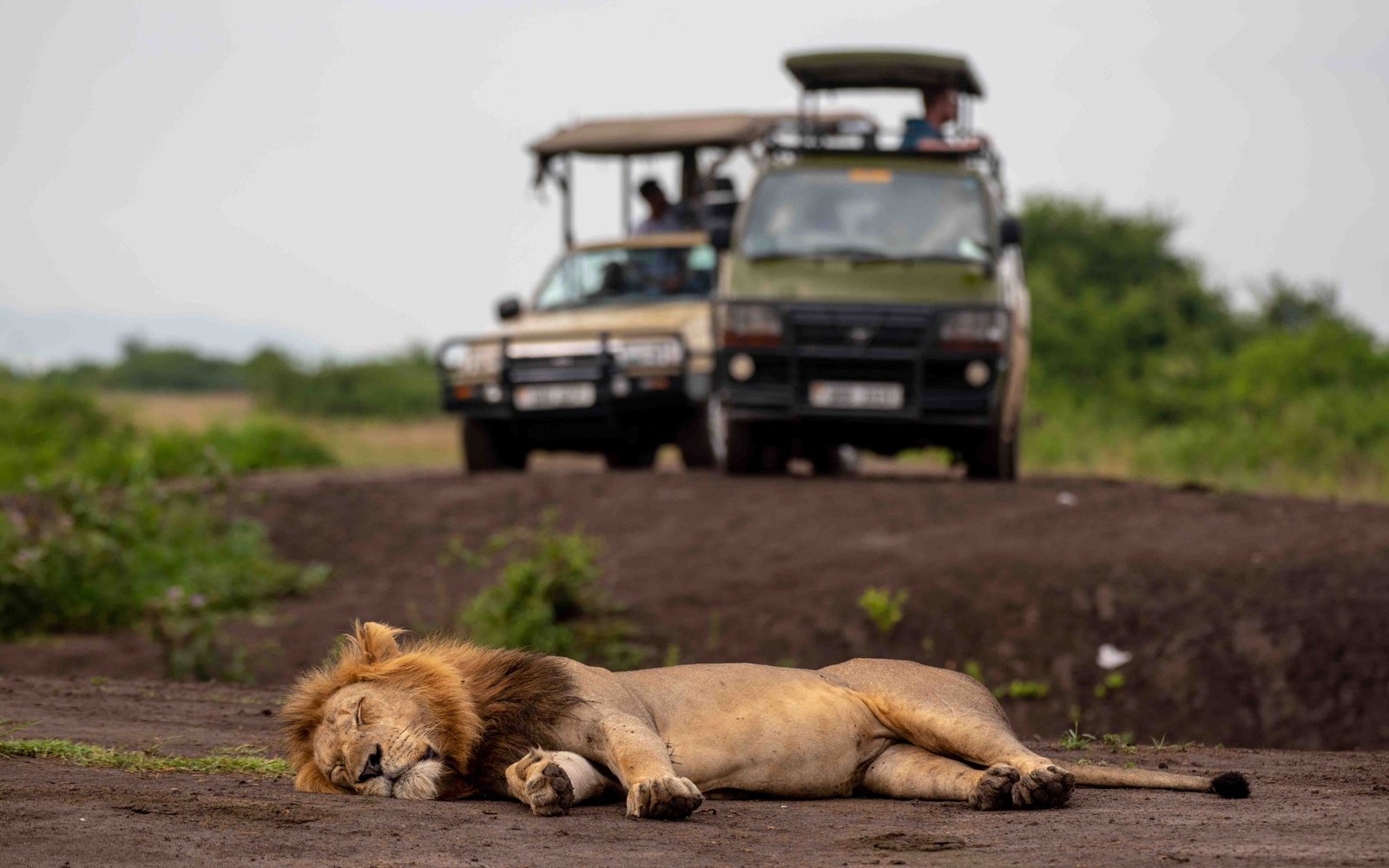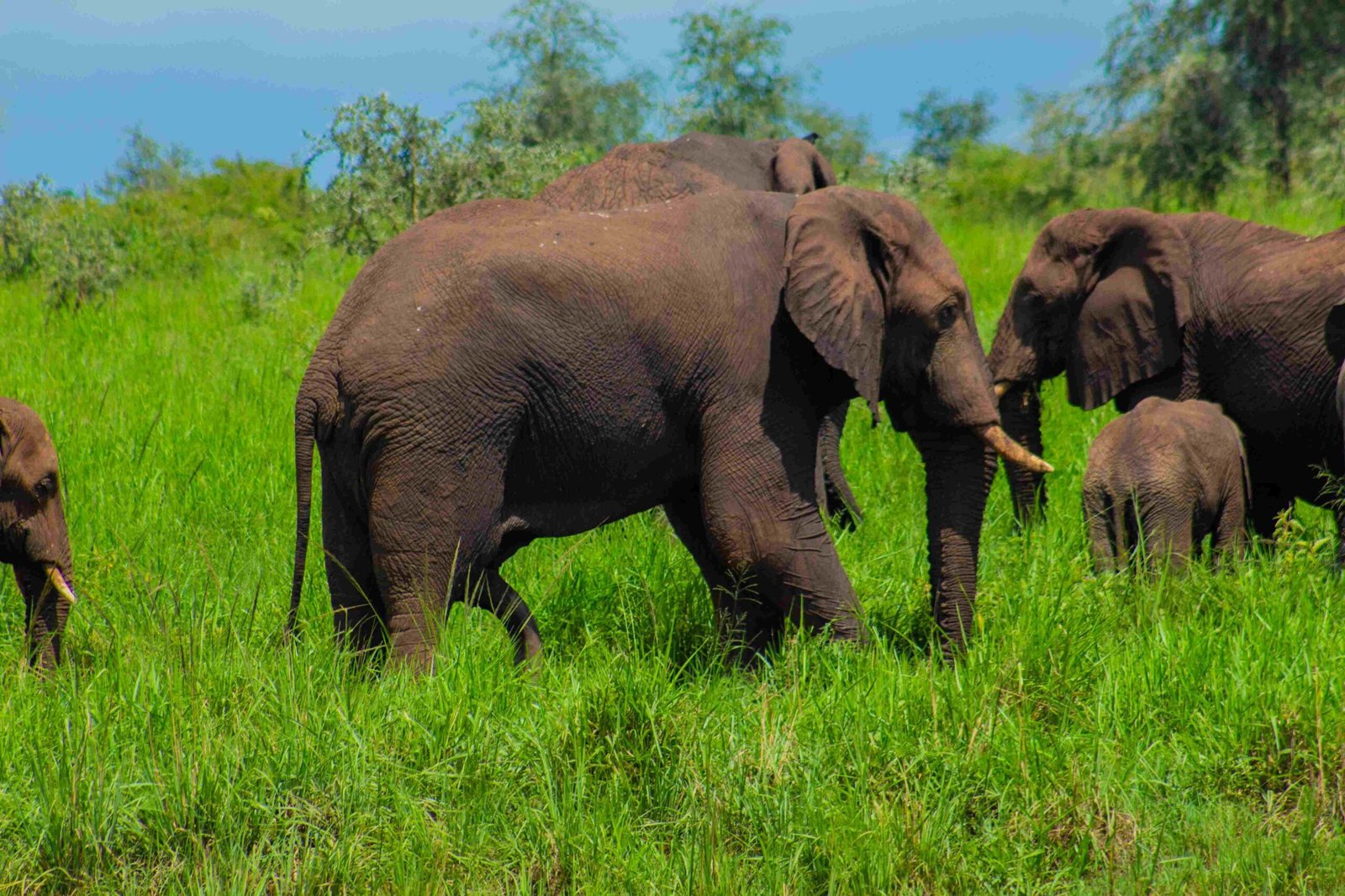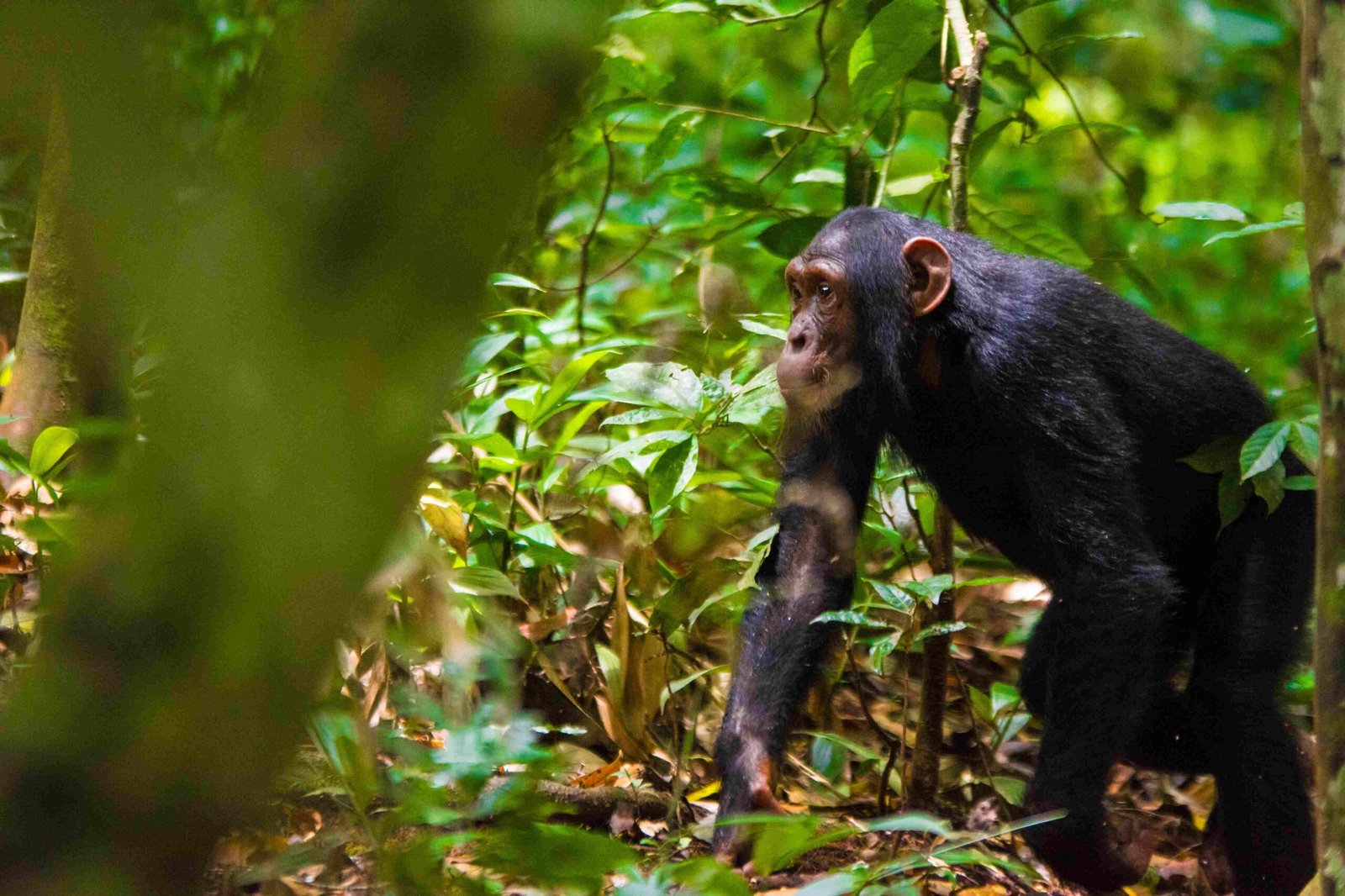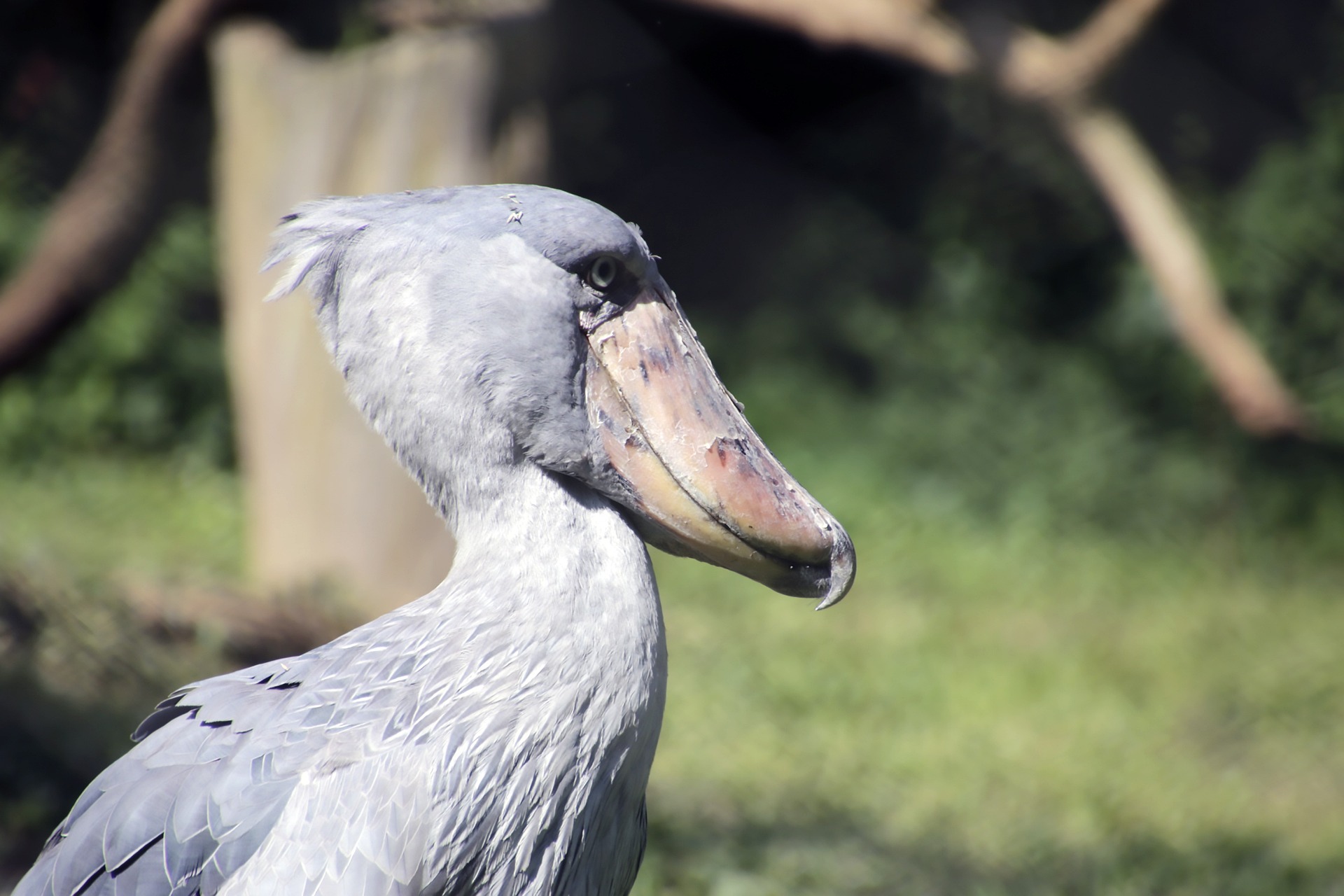Uganda Safaris: Tailored Tours and Packages for You 
Karibu! We are Tusker Trails Holidays, a reputable ground safari operator in Uganda. We are ready to take you on a safari of your dreams designed to your wishes and our expert advise. Discover our well crafted safaris in Uganda that showcase the best of Uganda’s top Safari destinations, our Uganda safari tours offer a wide variety of experiences to cater for all interests, budgets and personal preferences.
Things to Do: Uganda is a Hidden Gem Waiting for you to Discover 
Uganda Safaris take you to a land is a land of unforgettable experiences, where untamed wilderness, vibrant culture, and breathtaking landscapes converge. From thrilling gorilla and chimpanzee treks in lush rainforests to classic game drives among tree-climbing lions and elephants, the country offers some of Africa’s most unique wildlife encounters. Explore the majestic Rwenzori Mountains, cruise the Nile, or enjoy serene views across crater lakes and verdant valleys. With fewer crowds than neighboring destinations, Uganda tours promise a more intimate safari experience
Primate Safaris
Wildlife Safaris
Birding
Adventure
Cultural Tours

We are Tusker Trails Holidays: Your Home to Africa's Unmatched Safari Adventures
We specialize in crafting unforgettable safaris and beach holidays across Africa. As local experts, we are dedicated to designing personalized itineraries that offer a comprehensive cultural, historical, and geographical experience. We provide a high-quality, personalized service for individuals, families, and groups, defined by honesty, flexibility, and a commitment to creating community benefit
🌿 Why Choose Tusker Trails Hoidays?
At Tusker Trails Holidays, we don’t just offer tours; we create life-changing adventures.
01
Expert-Led Safaris
Led by experienced naturalists and local guides who know the land like the back of their hand.
02
Luxury & Comfort in the Wild
Stay in eco-lodges, luxury tents, or premium resorts—all designed to offer comfort while keeping you close to nature.
03
Tailor-Made Journeys
Whether you’re an adventure-seeker, wildlife photographer, or a family, we customize safaris to fit your needs.
04
Responsible Tourism
We focus on conservation and ethical wildlife experiences, ensuring our safaris benefit nature and local communities
BEST SELLING EAST AFRICAN TOURS
Explore the Most Popular Tours in East Africa 🐘
East Africa’s most popular travel itineraries offer a captivating mix of wildlife, culture, and scenic beauty across Kenya, Tanzania, Uganda, and Rwanda. A classic safari route begins in Kenya’s Masai Mara, renowned for the Great Migration and Big Five sightings, then continues into Tanzania’s Serengeti and Ngorongoro Crater for more breathtaking game drives and dramatic landscapes. Many travelers end this circuit with a relaxing escape to Zanzibar’s pristine beaches and historic Stone Town. In Uganda and Rwanda, primate-focused itineraries are a major draw, with gorilla trekking in Bwindi Impenetrable and Volcanoes National Parks offering once-in-a-lifetime encounters. These are often paired with chimpanzee tracking in Kibale Forest and wildlife safaris in Queen Elizabeth or Akagera National Parks. For adventure seekers, Jinja in Uganda offers white-water rafting on the Nile, while Mount Kilimanjaro in Tanzania attracts trekkers from around the world. Cultural experiences, such as visiting Maasai villages or engaging with Batwa communities, are frequently woven into multi-country tours.
ABOUT US
Tusker Trails Holidays– Experience the Wild Like Never Before
STEP INTO THE HEART OF THE JUNGLE WITH TUSKER TRAILS HOLIDAYS, YOUR ULTIMATE UGANDA SAFARI TRAVEL COMPANION.
We craft unforgettable Uganda safari packages tailored to suit all types of travelers. With a keen focus on time, safety, and budget constraints, we design our Uganda safari tours to cater to diverse age groups and preferences.
RECENT ARTICLES
Tales from the Wild: Safari Stories & Travel Tips 🦥
TRAVEL GUIDE
Where to Go and What to See: Top Uganda Safari Destinations 🦥
Uganda Safaris and tours offer a wide variety of things to do; whether you are an adventurer or simply looking for wildlife focused trips, there is something for everyone. Most travelers to Uganda come to trek mountain gorillas, but for those that seem to differ, there is still a lot that your safari in Uganda will offer
Wildlife
It must be stated that wildlife safaris in Uganda will not offer as much wildlife (mammals) Kenya and Tanzania offer but the real advantage is having to encounter wildlife with a few other tourists. Uganda safaris offer the most affordable wildlife trips owing to the lower cost of park fees ($40 -$45). For a more immersive experience, almost all the majors parks offer boat safaris to complement the traditional 4×4 game drives and increases your chance of wildlife sighting both on land and the aquatic species.
What are the best Destinations for Wildlife safaris in Uganda?
Uganda tours take you to 4 major national parks that offer the opportunity of wildlife safaris; Queen Elizabeth National Park, Murchison Falls National Park, Kidepo National Park and Lake Mburo National Park.
Queen Elizabeth National Park
This is the best national park in Uganda for big game other than primates and contains diverse landscapes and attractions to include; crater lakes, Rift Valley, rivers, Savannah and tropical rain forests. Wildlife drives is Queen Elizabeth National Park offer a variety of Willife species to include; elephants, leopards, Buffaloes, water bucks, Kobs and the famous tree climbing lions in the Ishasha sector among other various wildlife species. Almost all Uganda safari packages include a launch trip up the Kazinga channel which joins Lake Edward and George to see the thousands of hippos, birds, elephants and plenty of crocodiles.
Murchison Falls National Park
Murchison Falls National Park is the best all rounder national park with the raging Murchison falls that is a sight to behold. The park offers diverse landscapes to include; Savannah woodlands, grassy plains, riveting forests, lakes, rivers and swamps. Wildlife safaris in Murchison falls are mostly concentrated in the Buligi are located between Albert and Victoria Nile, and the chances of spotting lions and leopard is good. Among other wildlife species to look out for include; elephants, hippos, buffalo, Rothschild giraffes among other species. The 3 hour launch trip along the Victoria Nile from Paraa to the bottom of the falls is a highlight for many Uganda safari goers, there are redundant hippos, crocodiles, Buffaloes and numerous birds species to look out for along the sail. There is also a 5 hour launch cruise to the Delta where the Nile pours into Lake Albert, just like the 3 hour cruise, wildlife spotting is fantastic.
Kidepo Valley National Park
Kidepo Valley National Park has the most stunning scenery of any protected area in Uganda. Wildlife safaris to Kidepo offer wildlife sightings found no where else on a Safari in Uganda to include cheetah, bat eared foxes, aardwolf, and kudus. There is also a concentration of elephant, zebra, buffalo, lion, jackal and Nile crocodile. While wildlife safaris are excellent in Kidepo, it is the isolation that distinguishes this abandoned wildlife valley from the rest of wild Africa. Other than the traditional wildlife drive, the park and also be explore on foot.
Lake Mburo National Park
Lake Mburo National Park is a popular stop in the southern Uganda safari circuit for spotting zebra, it is also the only park to see Impala and a good place to look for leopard. Outside the traditional game drives, nature walks, boat safaris and bicycle riding safaris can be arranged
Gorillas
Uganda safaris and tours offer the opportunity to trek mountain gorillas in their own natural habitat; coming face to face with a family of mountain gorillas is one of all travelers’ great experiences. Relative to the false aggressive and fearsome perception gorillas get, visitors are always humbled by how gentle these big lads are. Finding the gorillas on your safari in Uganda is almost guaranteed for those willing to take on the 1 – 4 hour hike up the dense forested highlands of Uganda to search for them. Rangers keep track of the gorilla families’ movement each morning and advise the wardens of their location thereby ensuring you are on the right track.
What does Mountain Gorilla Trekking in Uganda look Like?
For many visitors considering Uganda tours, gorilla trekking is the single largest expenditure they will make considering the price of a gorilla permits ($800 per person as of 2024). The number of visitors that visit a single gorilla family are limited to a group of 8 people, each group is led you a park ranger, two trackers, two teachers and porters that assist with your luggage. The trek to search for the gorilla involves briefing early morning and then climbing down into gullies and up steep hills through a dense forest which might sound difficult but anyone fit can do.
Once a gorilla family is located, you are allowed a maximum of 1 hour with the mountain gorillas; expect to witness juveniles often seen playing around, adult females that are more cautious than the juveniles, the dominant male (silverback) usually keeps abit further from his human visitors. You will have an hour for photography moments, but ensure that your camera is turned off. Be sure you do not spend all your gorilla safari time looking through the cameras forgetting to take in the entire experience upclose and personal. After spending upto 60 minutes with the gentle lads, visitors descend to for a picnic lunch before returning to the park head quarters to conclude the Trek
What are the Best Destinations for Gorilla Trekking in Uganda?
The two options for trekking mountain gorillas on a safari in Uganda are Bwindi Impenetrable National Park and Mgahinga Gorilla National Park
Bwindi Impenetrable National Park
Bwindi is arguably the number one destination to track mountain gorillas in the world, both because of the many gorilla families located here, affordability and the amazing eco system the park offers comprising of a dense forested jungle. This 330 sq. km forest harbors about 459 mountain gorillas which is close to half of worlds remaining mountain gorilla population. Bwindi comprises 4 gorilla sectors to include; Buhoma and Ruhija sectors located in the Northern side, Rushaga and Nkuringo sectors found in the southern side of the park. Other primates resident in Bwindi include chimpanzee, black and white Columbus monkey, gray cheeked mangoley, L’Hoest’s monkey and blue monkey.
Mgahinga Gorilla National Park
Mgahinga is Uganda’s gazetted section of the Virunga volcanoes shared with Congo and Rwanda. The park is a good choice for Uganda safaris among independent travelers because of the one habituated gorilla family that has a tendency of crossing over the border to Rwanda and Congo. This makes the gorilla permit in Mgahinga only available for reservation less than two weeks in advance.
Chimpanzees
Uganda safari tours often include chimpanzee tracking trips to witness the playful primates in the natural habitat. Chimpanzee are arguably much more fun to watch compared to gorillas, mainly due to their active playful nature but just like the mountain gorillas, these primates also spend most of the day feeding and live in families.
What are the best places to see Chimpanzees in Uganda?
Chimpanzee can be seen a several destinations in Uganda to include Kibale Forest National Park, Budongo Forest Reserve, Kyambura Gorge, and Ngamba Island
Kibale Forest National Park
Kibale Forest is a rich ecosystem that comprises tropical rain forest, crater lakes, marshes and grassland and is the best place for Safari tours Uganda to track chimpanzees. Research also shows that Kibale Forest has the largest population of primates in the entire world naming it the primate capital of the world. Chimpanzee trips in Kibale start with an early morning briefing, before you head into the forest searching for chimpanzee families. Regular trackers are allowed one hour with the chimps but you can opt for chimpanzee habituation which allows for upto 4 hours with the chimpanzees. Catching them early in the morning allows you to watch them denesting and nesting as well as their day activities. Other primates found in Kibale Forest include; black and white Columbus monkey, red Columbus, gray cheeked mangoley, L’Hoest’s monkey and red tailed monkey
Kyambura Gorge
As part of Queen Elizabeth National Park, Kyambura Gorge is a green forested land scape cutting through Savannah beautifully like a scar. The Gorge is home to habituated chimpanzees best seen on a morning nature walk and if lucky, it is also possible to see the chimpanzees from the established viewing platform.
Budongo Forest Reserve
Budongo Forest Reserve is part of Murchison falls National Park, a virgin Tropical forest habouring habituated chimpanzees. Tracking chimps in Budongo Forest allows for a maximum of 24 visitors offering both regular tracking and chimpanzee habituation
Ngamba Island
This Island located on Lake Victoria is another landmark for Uganda Safari packages focused on seeing chimpanzees around Kampala or Entebbe. Ngamba is home to a family of orphaned chimpanzees that are free to roam the forested island and later return to the sanctuary at night. There are two viewing times in a day where you get to see the chimpanzees being fed from a raised viewing platform.
Adventure
Uganda safari packages offer a variety of activities for adventurers, from hiking trips to thrilling mountaineering tours, white water rafting, bungee jumping and quad biking.
What are the best adventure Experiences in Uganda?
Climbing Rwenzori Mountains
Rwenzori mountains is a series of mountain ranges, third tallest in Africa after Mount Kilimanjaro and Mount Kenya. The three tallest peaks in the ranges are Margherita (5109m), Alexandria (5083), and Albert (5087). The hike to Rwenzori mountains may not require mountaineering skills, only for climbing the glaciers or peaks. The climb to the glaciers takes 6 to 7 days taking you through some of the most amazing vegetation in the world and the central circuit is the most popular route on the mountain. The best time to climb is mid December through February and June through August during the dry season.
Climbing Mount Elgon
Mount Elgon is offers a good alternative climb to Rwenzori Mountains since it offers a milder climate, lower elevation and reasonable prices. It is possible to hike days without seeing another hiker due to the fewer tourists that opt for this climb. With upto 5 established routes to climb the mountain; the Sipi trail, Sasa trail, Piswa trail,Suam Trail and Bushiri Trail. The climb to the summit takes 4 to 5 Days depending on your fitness levels and the route you opt for.
River Nile White Water Rafting
This upper stretch of River Nile in Jinja offer grade 3 to grade 5 Rapids, a perfect destination for world class white water rafting trips and for many people, this river trip is the highlight of a safari tours in Uganda. Nile white rafting trips range from half day to full day rafting experiences, and depending on your adrenaline level, you can opt from grade 3 to grade 5 Rapids. Apart from rafting, you can also opt for Kayaking along the river, steering yourself through the raging river with a variety of paddling courses offered
Quad Biking
Quad biking along the the banks of River Nile is another adventure activity in Jinja that can complement Uganda safari trips. After a rehearsal spin in the practicing circuit, you take on the trails crisis crossing the nearby country side. There are several circuits offered that range from 1 hour short safaris to 3.5 hour safaris.
Horseback Riding Safaris
Horse back riding safaris offer a unique way to explore Uganda safaris, with no experience required. The two popular destinations for horse back safaris in Uganda are Lake Mburo National Park and Jinja. Horse bark safaris in Jinja offer upto 2 hour trips along the hills above the Nile River and through local villages while Horse back safaris in Lake Mburo National Park offer a unique opportunity to saddle along with wildlife. It is advisable to book these trips in advance as they are often fully booked.
Bungee Jumping
Jinja – East Africa’s adventure city also offer bungee jumping opportunities, Uganda’s only bungee jump which is a 44m plunge to the Nile River.
Birding
Uganda safaris offer some of Africa’s best birding excursions owing to over 1000 bird species that have been recorded that include resident and migratory species. A wealth of hornbills, turacos, barbets, sunbirds, King fishers, weavers, and storks are presents, as well as the bizarre and much sought after shoebill.
What are the Best Birding Destinations in Uganda?
Queen Elizabeth National Park
This park is ranked as the best bird watching destination in Uganda with an astonishing 547 bird species recorded. Twelve species of King fishers, including the giant and dwarf can be seen. There are 17 varieties of nectar feeding sunbirds, flocks of red throated bee eaters, gangs of crowlike piapiacs, families of Ross’s turacos and the rare prehistoric looking shoebill.
Kidepo Valley National Park
Birders often relish their time spent in Kidepo Valley National Park as it boasts 475 bird species, some not found anywhere else in Uganda. Birds species to include; the black breasted barbet, Karamoja apalis and the rose fingered parakeet are just some of the rarer birds to see.
Murchison Falls National Park
Murchison Falls offers prolific bird life both on land and along the river banks best explored on a launch cruise to the bottom of the falls and the delta cruise. With over 400 species recorded including red throated bee eater, piacpiac, silverbird and black headed gonolek
Semliki Game Reserve
This vast game reserve comprising of grassland, Savannah, forest and wetland offer a perfect sanctuary for Uganda safari – bird watchers, with 35 of the 385 species found no where else in East Africa. The unique species include the chestnut owlet, white-crested hornbill, African piculet and fiery-breasted bush shrike.
Kibale Forest National Park
There over 300 species of birds recorded in Kibale National Park, the green breasted pitta, black been eater, white headed wood hoops and the tiny chestnut wattle-eye are some of the possible delights to look out for
Bwindi Impenetrable Forest National Park
Bwindi is home to an estimated 345 bird species and among these include the blue turaco, yellow eyed black flycatcher, Luhder’s bushshrike, Vanga flycatcher, black faced rufous warbler, black throttle apalis and elusive green broadbill.
VOICES FROM THE WILD
Safari Tales: Unforgettable Memories from Our Guests
Unforgettable Safari Experiences: Read What Our Guests Loved About Tusker Trails Holidays
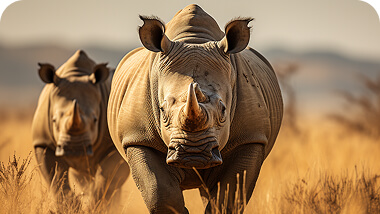

“Classic Safari Adventure”
WildTrek delivered the safari of a lifetime! Seeing the Big Five up close in their natural habitat was surreal. The guides were incred..
Jessica & David Carter
April 12, 2024
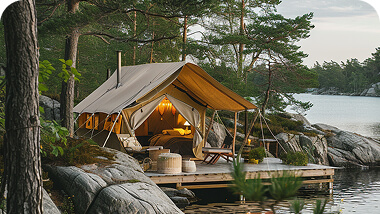

“Luxury Safari Experience”
I’ve been on several safaris, but WildTrek’s luxury package exceeded all my expectations. From private game drives to f…
Samantha Bennett
January 8, 2024
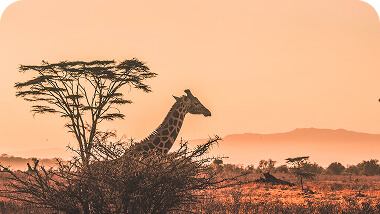

“Short Safari Getaway”
With only a few days to spare, I booked WildTrek’s weekend safari, and it was worth every second! The game drives, sunset vie…
Daniel Foster
February 5, 2024
EXPERT ADVICE
FAQS: Get to Know More About Uganda Safari 🦥
Frequently Asked Questions About Safari in Uganda addressed by an our seasoned Uganda safari experts at Tusker Trails Holidays
What is the Best Time for Safari in Uganda?
The best time to visit for safari in Uganda is during the dry months of the year which are December to February and June to September. Uganda safari tours in the wet months of March, April, May and November are still possible, just a bit slower and you might not enjoy the outdoor activities very much.
How much does a safari in Uganda cost?
The cost of Uganda safaris varies with what type of safari you are looking for in terms of number of days, comfort level, your group size and your planned travel month. Traveling in the peak season months of December to February and June to September will be costly since this is the time many tourists flock the country for safari, accommodations charge nearly twice what you would pay for in the low season months of March, April May and November.
For a general overview of the the expenses associated with a safari in Uganda; park entry fee to the wildlife Parks (not primates) is $40 – $45 per person for 24hrs, a gorilla permit costs $800 per person for a single gorilla trek, gorilla habituation permit costs $1,500 per person and a chimpanzee permits costs between $50 to $250 depending on where you track. Boat safaris anywhere in the national parks are priced at $35 per person. Transportation costs varies with the type of vehicle but can go for $150 to $300 per day, this price is inclusive of the vehicle hire, driver’s fee and fuel. Accommodation cost varies with the comfort level; for budget lodging in to be parks, expect to pay anywhere between $50 to $70 per person per night on a sharing basis, midrange hotels charge between $100 to 150 per person per night on a sharing basis whereas luxury hotels cost upwards of $250 per person per night on a sharing basis.
For a general overview of the cost of a safari in Uganda, a day in the wildlife parks (without gorilla or chimpanzee permits) costs $250 per person per day on sharing basis for a budget package, for $335 per person per day on sharing basis you can get a midrange safari package while luxury Uganda safaris in the wildlife parks cost upwards of $500 per person per day on sharing basis.
What are the entry requirement for Uganda?
A Visa is mandatory for all travelers that do not hold African passports, and some countries in Africa will still need a visa. Visas are acquired online through application, receiving your visa within a weeks time. (Your passport should be valid for atleast 6 months). Visitors for Uganda safari purposes should opt for the single entry visa that costs $50 and is valid for 3 months. Should your travel include further travels to Kenya or Rwanda, you can apply for the East African Visa that permit entry to all the 3 countries.
Yellow fever vaccination is mandatory for all travelers to Uganda without exemption.
What should I pack for safari in Uganda?
Packing the essentials for your safari tour Uganda ensures a seamless and comfortable experience on your safari.
Our recommended checklist for clothing includes; sandals for your relaxing time, comfortable closed shoes, Wilde brimmed hat or cap, windbreaker sweater, 1-2 safari pants, 1-2 safari shorts, 3 pairs of sports socks, water proof jacket, 1-2 pairs of short sleeve and long sleeve safari shirts, swimsuit, 1 pair of casual slack or skirt or 2 blouses, belt, underwear, bras and sports bra for rough roads, pajamas. It is important to be aware of safari colors for your clothing, these are khaki earth tones (neutral colors) which repel heat and are good at disguising any patches of African dust and dirt. While packing clothing for your safari in Uganda, keep away from bright color options including black and blue they do attract tsetse flies. In terms of fabric, light and breathable material is more comfortable.
For Sundries, we recommend you pack items to include; your prescription drugs, anti malaria pills (should start medication before arriving to Uganda), anti diarrhea pills, vitamins, antibiotics, insect repellent, sunscreen, shampoo, conditioner, deodorant, toothpaste, toothbrush, hair brush, makeup.
For Souvenirs, ensure to pack items to include; a yellow fever vaccination card, passport, printed visa, air tickets, credit cards, cellphone, charger plus power bank. Sunglasses, small torch with batteries, pens and reading material.
What is the etiquette for trekking mountain gorillas in Uganda?
The etiquette for trekking mountain gorillas in Uganda is important to ensure safety on you safari in Uganda and conservation of these great apes for generations to come. Some of the rules set for gorilla trekking include; maintaining a distance of 7m from the gorillas upon meeting them, this ensures that the gorillas do not catch any communicable human diseases. You should at all times avoid eye contact with a silverback, and if a silver back reacts aggressively, look down immediately and take a submissive posture or sit. Photography is an important part of gorilla safaris in Uganda, but make sure to turn off your flash while taking photos of the gorillas. Generally, to ensure etiquette, simply follow the guidelines told you by your guide/ranger while on a trek.
Where to stay on your safari in Uganda?
There are hotel options for all travelers in Uganda, from budget friendly to five star rated hotels. The best way to find a good hotel is dealing with a tour operator, these are licensed companies in Uganda that have arranged Safari packages in Uganda for years. Who else is well fitted to recommend the best places to stay than a Uganda tour operator?
Most travelers will book all inclusive Uganda safari packages that will cover accommodations that have been fitted by the tour operator and agreed to by the guest. The best part? Most tour operators in Uganda are flexible to changing hotels in their offered itineraries based on the guest’s wishes and budget.
How can I book a gorilla permit in Uganda?
Booking a gorilla permit in Uganda is done in advance to ensure availability, to book your gorilla permit, you will have to get in touch with a tour operator in Uganda that is licensed by the Uganda Tourism Board who will be able to book you a slot on your preferred date of trekking. If you have booked an all inclusive Uganda safari tour with a tour company in Uganda, then you do not have to worry about the acquiring a gorilla permit as your tour operator will handle booking the permit for you.
How do you book a Uganda safari tour?
The best way to book a safari tour in Uganda is through a reputable tour operator in Uganda, over seas travel agents of even a safari lodge in the destination you plan to visit. Booking through a tour operator offers the advantage of getting a fairly priced Uganda tour package and not having to worry about any logistics other than flying in to enjoy a safari well planned to your specific needs. Most reputable tour companies in Uganda will ask for a 30% – 40% deposit to confirm a safari booking, expect to pay the remaining full amount a month to your date of travel. Finding a reputable tour company in Uganda will require some research to look into reviews of a company but most importantly focus on your communication with the tour operator, are they willing to offer something you are looking for? It is also in best practice to reach out to about 3 different companies to get the best quote to choose from.
How safe is Uganda for Tourists?
Uganda is generally safe for all travelers across the world, but never the less, it important to keep vigilant and exercise cautions. Always check for travel advisory from your home embassy before traveling to Uganda as there have been a few incidences of terrorist attacks in the country. Visiting outside the election years is rendered safer as there has been record of political unrest during elections, not to harm, but you would not want to delay your itinerary due to blocked off roads or any uncertainty. For a fact, Uganda is very welcoming country, thanks to the hospitable reputation of Ugandans, anywhere you go, expect to be welcomed with warm arms and smiley faces.
How do you fly to Uganda?
Most travelers to Uganda enter by Air, Entebbe International Airport is the only gateway to Uganda. There are a number of international flights from all destinations across the world that fly directed to Uganda with one or two stops. But for budget friendly flight options, seeking discounted fares that mainly fly to Nairobi, the main gateway to East Africa and changing planes to continue to Uganda would be turn out cheaper. Popular international flight aggregators that offer flights to Uganda include; Ethiopian Airways, Egypt Air, Kenya Airways, Brussels Airlines, Emirates, Oman Air, Air Arabia and KLM. Google flights is a good place to compare flights for the best suitable flight to Uganda that you can book online easily.
See It. Snap It. Love It! 📷
Great Migration Photo Safari: Witness & Document the World’s Most Spectacular Animal Movement.
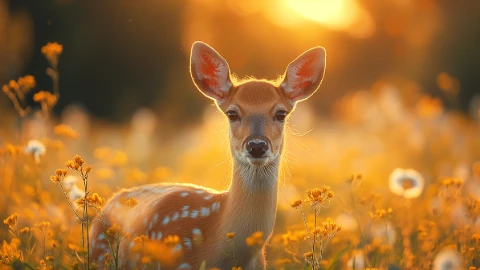
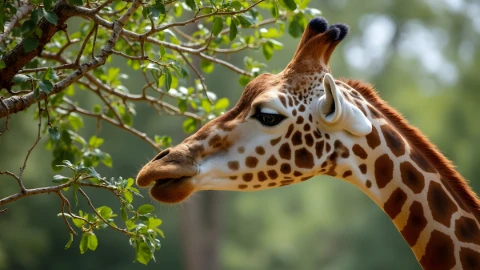
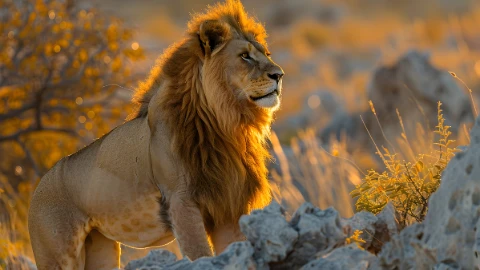
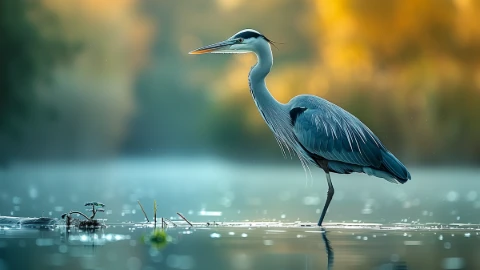
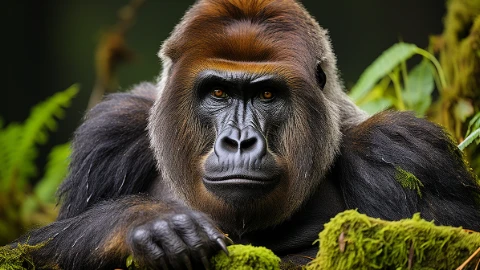
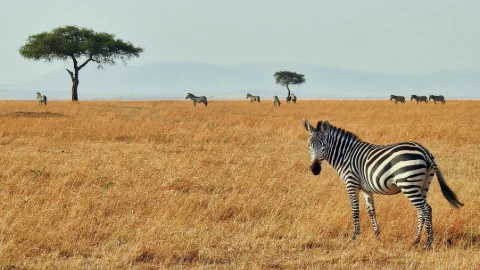
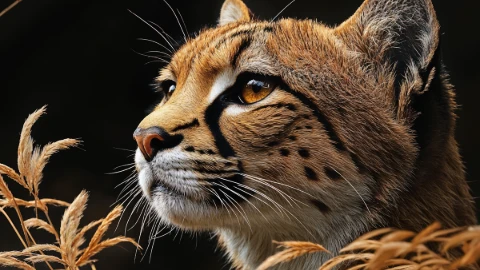
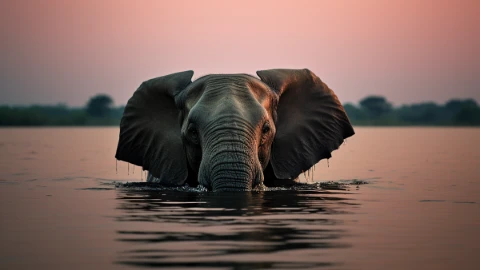
ANY QUESTIONS?
Ready for Your Wild Adventure?
Let Tusker Trails Holidays take you on an unforgettable Uganda safari journey. Whether you seek a private tour, a student expedition, a research group adventure, or a large group departure for up to 100 passengers, we have the flexibility to accommodate your needs and even incorporate last-minute changes seamlessly.
☎️ +256788324338
